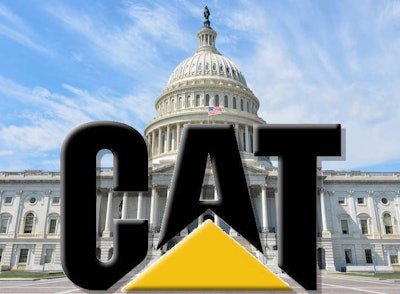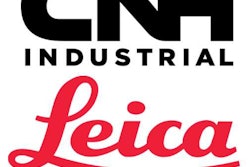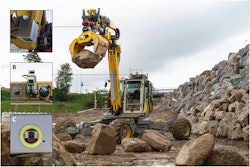
In the end, it was more of a fair fight than expected for the heavy equipment manufacturer as Republican Senators spoke up in defense of the company during the hearing.
According to a report from CBS, Levin opened the hearing by detailing how Caterpillar has since 1999 avoided paying $2.4 billion in federal taxes through corporate restructurings that shifted profits to Switzerland, Bermuda and Luxembourg where corporate taxes are much lower than they are in the U.S.
In response, Republican Rand Paul, who will likely end up as a strong contender for the Presidency in 2016, turned the tables on Levin, according to a report from Reuters.
“We’ve got the wrong people on trial here. The tax code needs to be on trial here,” Paul said. According to a report from ABC, Sen. Paul even questioned why the hearing was being held in the first place, noting that Caterpillar has a responsibility to its shareholders to minimize taxes.
“I think rather than having an inquisition, we should probably bring Caterpillar here and give them an award,” Paul said. “You know, they’ve been in business for over 100 years. It’s not easy to stay in business.”
Fellow-Republican Rob Portman agreed, saying the 35-percent corporate income tax rate in the U.S. needs to be slashed because it encourages companies to invest in overseas operations.
As expected, former Republican Presidential nominee and current Arizona senator John McCain spoke up in Cat’s defense as well and called for a more “competitive” tax rate. Sen. McCain echoed Portman’s sentiments saying that the current rate is “a factor in moving U.S. operations overseas and parking profits overseas rather than bringing them back.”
CBS reported that Cat vice president Julie Lagacy said during the hearing that the company stands by its tax strategy and noted that despite it, the company still has a relatively high effective income tax rate of 29 percent.
“Caterpillar takes very seriously its obligation to follow tax law and pay what it owes,” Lagacy said in a prepared testimony. “Caterpillar’s philosophy is that our business structure drives our tax structure. We comply with the tax laws enacted by Congress, by the states and by all of the many jurisdictions in which we conduct business.”
But Cat wasn’t the only entity receiving criticism from Levin during the hearing. According to the Wall Street Journal, Levin read aloud emails sent between colleagues at Cat’s accounting firm PricewaterhouseCoopers. In one email, two PwC colleagues allegedly discussed how they might spin the relocation of Cat product managers from Switzerland to the U.S. to make sure the move didn’t disrupt tax savings as part of the strategy.
“We are going to have to create a story that will put some distance between them and the parts…to retain the benefit,” tax partner Thomas F. Quinn, Steven R. Williams, a managing director at PwC. “Get ready to do some dancing.”
“What the heck,” replied Williams. “We’ll all be retired when this comes up on audit.”
When asked by Levin to explain, Quinn said his correspondence was poorly worded and he was actually talking bout potential tax liabilities the relocation may cause. Williams said his response was inappropriate and “an attempt at humor.”












